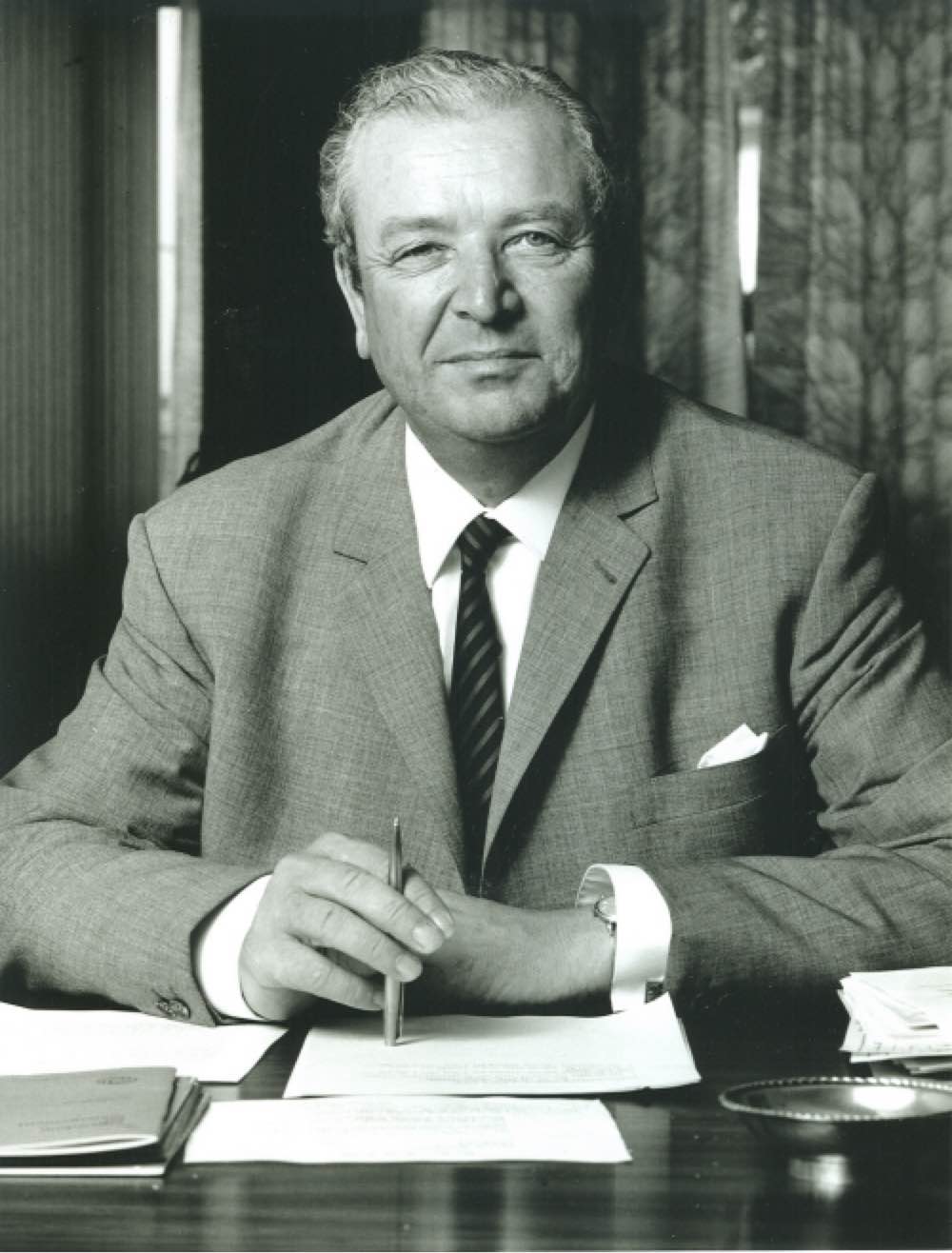J.H. de Pont
On September 18, 1987 the attorney and businessman J.H. de Pont died in Tilburg. Shortly before his death he decided, in consultation with his immediate family, that a part of his estate was to be used to stimulate contemporary visual art. In 1988 a foundation bearing his name was brought into existence for that purpose.
Born in Tilburg on February 22, 1915, Jan de Pont studied law in Utrecht. On finishing his studies, he took up residence in Amsterdam, where he became licensed as a lawyer. During the war years he protected the interests of innumerable countrymen in German captivity. Due to the risks involved in these activities, De Pont found himself in the Amsterdam jail in the autumn of 1944; here he was held by the occupying forces until the liberation.
After the war Jan de Pont, whose name as a lawyer had meanwhile become established, took on many cases that pertained to the restoration of certain individuals’ rights. His talents also gained repute in the political arena. As a legal advisor, he was a member of the Dutch delegation that carried on negotiations concerning Indonesian independence in Batavia in 1948. He participated in the Round-Table Conference in 1949.
Apart from his legal skills, Jan de Pont proved to possess a sharp business instinct. During the course of the 1950s, he became the legal advisor or supervisory director of many enterprises. One of the companies that made use of his services was AGAM, the importer of Mercedes-Benz in the Netherlands. The owner of this enterprise had no successor and, on his retirement in 1956, asked Jan de Pont to step in as acting director.
De Pont accepted the challenge, which eventually led to the complete take-over of the company in 1960. Under his direction AGAM expanded rapidly during the 1960s. Many new dealerships were started, and in 1970 a new head office was opened in Utrecht. Here he became one of the first entrepreneurs in our country to install art in the workplace.
Jan de Pont's business interests did not remain confined to the automobile industry. He became involved in, among other things, the reorganization of textile mills in his birthplace, Tilburg. One of these, the wool-spinning mill Thomas de Beer, was able to function again in 1969, much to De Pont's satisfaction. The interest in this mill would stay with him until the end of his life. He did not experience the ultimate necessity of ending the mill's activities in 1989. The fact that the mill complex now houses the art foundation which bears his name would certainly have given him great pleasure.
